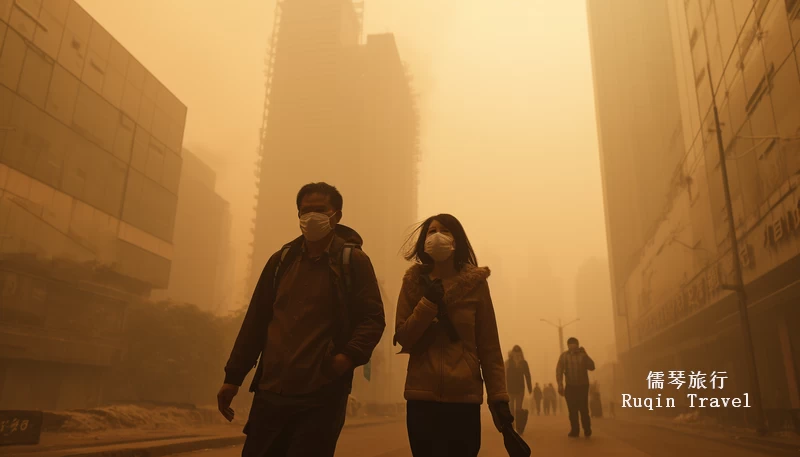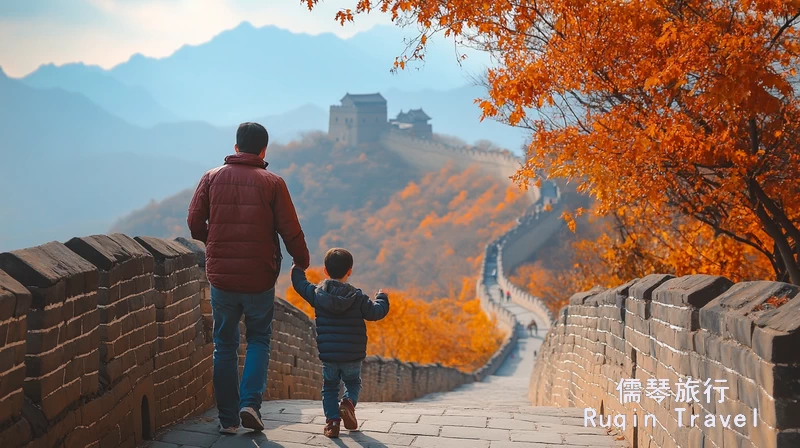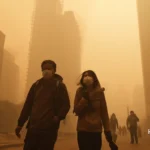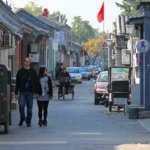Plan your Beijing tour? Visiting Beijing is an incredible experience, filled with ancient landmarks, vibrant culture, and delicious cuisine. However, like any major city, it’s important to stay mindful of your health and safety during your trip.
Whether you’re concerned about air quality, local food, or navigating the city, this guide will provide you with essential information to ensure a safe and healthy visit. In this article, we will cover Health and Safety Tips for Beijing Visitors to help you make the most of your trip.
1. Air Quality in Beijing: What You Need to Know

One of the first things many travelers notice about Beijing is the air quality. Beijing can experience periods of heavy air pollution, particularly in winter. However, there are ways to stay safe and minimize health risks from pollution.
Firstly, check the air quality index (AQI) daily through apps like AirVisual or your phone’s weather app. On days when the AQI is high, it’s best to limit outdoor activities, especially if you have respiratory conditions. Wearing a high-quality mask, such as an N95, can help filter out harmful particles and is a common precaution used by both locals and tourists. Additionally, you may want to choose indoor activities, such as visiting museums or exploring shopping centers, on days with poor air quality.
By following these Beijing air quality tips for visitors, you can enjoy the city while minimizing health risks. Staying indoors on bad air days and wearing a mask can significantly reduce exposure to pollution.
2. Tips for Sandstorm Season in Beijing
When visiting Beijing during the sandstorm season, it’s important to be prepared and stay informed. With the right tips and knowledge, navigating through these natural occurrences can be less daunting.
Please check out Top Tips for Sandstorm Season in Beijing for more information.

The sandstorm season in Beijing typically spans from March to May. This period is characterized by strong northern winds from deserts like the Gobi, bringing sand and dust to the city. The severity and frequency of these sandstorms vary annually, influenced by desertification, weather patterns, and climate changes.
3. Staying Healthy While Visiting Beijing
While exploring Beijing’s many attractions, you’ll want to take steps to maintain your health. Beijing travel health tips include staying hydrated, eating healthy, and getting plenty of rest. Beijing’s climate can be dry, especially in winter, so it’s important to drink enough water throughout the day.
Additionally, be mindful of the food you eat. The local cuisine is delicious, but some street food may not meet the hygiene standards you’re used to. When in doubt, choose popular restaurants with good reviews. Always wash your hands or use hand sanitizer before meals, especially after a day of sightseeing. These travel health precautions for Beijing will help you avoid common stomach issues or foodborne illnesses.
When it comes to water, avoid drinking tap water. Beijing’s tap water is not safe for drinking without boiling or filtering. Instead, opt for bottled water, which is widely available. Additionally, use bottled water when brushing your teeth. By following these safe food and water tips for Beijing travelers, you can reduce your risk of getting sick.
4. Vaccinations and Health Precautions
Before traveling to Beijing, it’s a good idea to ensure that you are up to date on routine vaccinations. These include hepatitis A and B, typhoid, and influenza. Consult your healthcare provider well in advance of your trip to discuss any additional vaccinations or medications you may need. They may recommend vaccines based on your specific travel plans and medical history.
It’s also a good idea to bring a basic travel health kit with items like pain relievers, bandages, and any prescription medications you take. While pharmacies in Beijing are common, they may not carry the specific brands or medications you are used to. Preparing your own kit in advance is one of the best practices for staying safe in Beijing.
5. Navigating Beijing’s Public Transport
Beijing has an efficient public transportation system, but it can be overwhelming for first-time visitors. To stay safe in Beijing’s public transport, follow these tips. First, always keep an eye on your belongings. Pickpocketing can happen in crowded buses and subway stations, especially during peak hours.
Additionally, it’s a good idea to avoid rush hour if possible, as buses and subways can become extremely packed. The busiest times are typically between 7:30-9:30 AM and 5:00-7:00 PM. If you’re new to the city, using a navigation app like Gaode Maps (Amap) or Baidu Maps can help you find the best routes and avoid getting lost.
By staying alert and aware of your surroundings, you’ll navigate the city’s transportation system with ease. These Beijing travel safety tips for foreigners are essential for ensuring a smooth journey.
6. Safety Concerns in Beijing
Beijing is generally a very safe city for tourists, but it’s still important to stay aware of your surroundings. Violent crime is rare, but petty theft can happen in crowded areas. Some safety advice for tourists in Beijing includes avoiding dark or poorly lit areas at night and keeping your valuables secured in your hotel or a safe place.
If you need help, don’t hesitate to ask for assistance. Police officers are generally helpful and approachable, and many tourist areas have visible security personnel. Additionally, having a local contact number or your hotel’s business card can help in case you get lost or need directions. Keep these essential safety tips for Beijing travelers in mind as you explore the city.
7. Emergency Contact Information for Tourists
Knowing who to contact in an emergency is crucial for travelers. Make sure you have the Beijing emergency contact information for tourists readily available. The general emergency numbers in China are:
- 110 for police
- 120 for medical emergencies
- 119 for fire
Additionally, it’s helpful to have your country’s embassy or consulate contact details. They can provide assistance in case of lost passports, legal issues, or other emergencies. It’s also a good idea to keep a copy of your travel documents and important numbers with you.
8. Staying Safe While Exploring the City
Beijing is a city that’s best explored by foot, but pedestrian safety is important. Health and Safety Tips for Beijing Visitors include always using marked crosswalks when crossing streets and following traffic signals. Traffic in Beijing can be unpredictable, and vehicles don’t always yield to pedestrians. Pay close attention when crossing busy roads, even at pedestrian lights.
If you’re biking or using electric scooters, stay on designated bike lanes and wear a helmet. Many visitors use bikes to explore attractions like the hutongs or parks, so it’s important to ride cautiously.
9. Common Health Risks in Beijing
While visiting Beijing, you may encounter some common health risks. As mentioned, air pollution is a primary concern, especially for those with respiratory issues. Additionally, travelers may experience digestive issues if they are not careful with food and water. These common health risks in Beijing can be mitigated by following the advice outlined in this guide.
Lastly, be aware of temperature extremes. Winters in Beijing can be bitterly cold, while summers can get very hot and humid. Dress appropriately for the weather, and stay hydrated during hot months.
10. The Common Scams in Beijing
When visiting Beijing, it’s important to be aware of a few common scams that tourists may encounter. While the city is generally safe, being informed can help you avoid unpleasant situations.
Please check out the 10 Most Common Scams in Beijing for more information.
Awareness and caution are your best allies in avoiding these traps. This “The 10 Most Common Scams in Beijing” guide highlights the biggest scams in Beijing, helping you to have a memorable and trouble-free experience in this dynamic city.
Beijing is a fantastic city full of rich culture, but staying safe and healthy is key to making the most of your trip. From avoiding air pollution to ensuring food safety, these Health and Safety Tips for Beijing Visitors will help you navigate the city with confidence.
By following the advice in this Beijing travel safety guide, you can focus on enjoying your experience while minimizing health risks. Whether you’re exploring historic sites or trying local cuisine, staying mindful of your health and safety ensures a memorable and trouble-free visit. So pack smart, stay aware, and get ready for an incredible adventure in Beijing!
More China Survival Guide
Planning China tour ? Our China Survival Guide offers essential tips and advice to help you navigate the country with confidence. From cultural etiquette and transportation tips to staying healthy and avoiding common scams.



